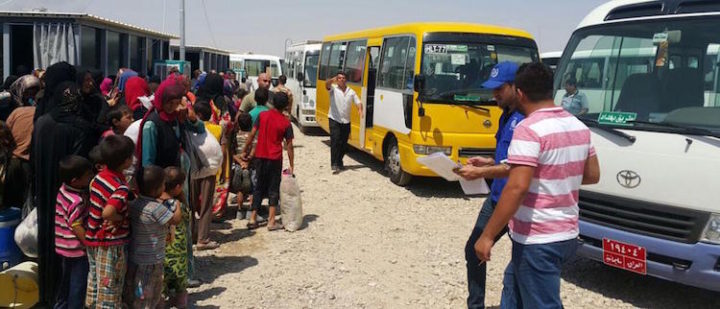By Jaya Ramachdandran
BERLIN | NEW YORK (IDN) – The forthcoming UN Summit on Refugees and Migrants on September 19 in New York would launch a process of intergovernmental negotiations leading to the adoption of a ‘Global Compact for Safe, Orderly and Regular Migration’.
The intergovernmental negotiations, which will begin in early 2017, are to culminate in an intergovernmental conference on international migration in 2018 at which the Global Compact would be presented for adoption.
As the Third High Level Dialogue on International Migration and Development is to be held in New York “no later than 2019”, the draft under consideration pleads for envisaging a role for the High Level Dialogue in the process.
The draft invites the President of the General Assembly to make early arrangements for the appointment of two co-facilitators to lead open, transparent and inclusive consultations with States, with a view to the determination of modalities, a timeline, possible preparatory conferences and other practicalities relating to the intergovernmental negotiations, including the integration of Geneva based migration expertise.
The Secretary General, on his part, is expected to provide appropriate support for the negotiations. “We envisage that the UN Secretariat and the International Organization for Migration would jointly service the negotiations, the former providing capacity and support and the latter extending the technical and policy expertise required.”
The draft adds: “We envisage also that the Special Representative of the Secretary General for International Migration, Peter Sutherland, would coordinate the contributions to be made to the negotiation process by the Global Forum for Migration and Development and the Global Migration Group.”
Further: “We envisage that the ILO, UNODC, UNHCR, UNDP, OHCHR and other agencies with significant mandates and expertise related to migration would contribute to the process.”
Regional consultations in support of the negotiations are considered desirable, including through existing consultative processes and mechanisms, where appropriate.
Civil society, the private sector, diaspora communities and migrant organizations are expected to contribute to the process for the preparation of the Global Compact.
Elements for the Global Compact might include, but would not be limited to, the following:
International migration as a multidimensional reality of major relevance for the development of countries of origin, transit and destination, as recognized in the 2030 Agenda for Sustainable Development;
International migration as a potential opportunity for migrants and their families;
Need to address the drivers of migration, including through strengthened efforts in development, poverty eradication, conflict prevention and resolution;
The contribution made by migrants to sustainable development and the complex interrelationship between migration and development;
The facilitation of safe, orderly, regular and responsible migration and mobility of people, including through the implementation of planned and well-managed migration policies; this may include the creation and expansion of safe, regular pathways for migration;
The scope for greater international cooperation with a view to improving migration governance;
The impacts of migration on human capital in countries of origin;
Remittances as an important source of private capital and their contribution to development; faster, cheaper and safer remittances through legal channels, in both source and recipient countries, including through a reduction of transaction costs;
Effective protection of the human rights and fundamental freedoms of migrants, including women and children, regardless of their migratory status; the specific needs of migrants in vulnerable situations;
International cooperation for border control with full respect for the human rights of migrants;
Combatting trafficking in persons, migrant smuggling and contemporary forms of slavery;
Identifying those who have been trafficked and consider providing assistance, including temporary or permanent residency, and work permits, as appropriate;
Reduction of incidence and impact of irregular migration;
Addressing the situations of migrants in countries in crisis;
Promotion, as appropriate, of the inclusion of migrants in host societies; access to basic services for migrants; gender-responsive services;
Consideration of policies to regularise the status of migrants;
Protection of labour rights and a safe environment for migrant workers and those in precarious employment; protection of women migrant workers in all sectors; promotion of labour mobility, including circular migration;
Responsibilities and obligations of migrants toward host countries;
Return and readmission, and improving cooperation in this regard between countries of origin and destination;
Harnessing the contribution of diasporas; strengthening links with countries of origin;
Combatting racism, xenophobia, discrimination and intolerance towards all migrants;
Disaggregated data on international migration;
Recognition of foreign qualifications, education and skills; cooperation on access to, and portability of, earned benefits; and
Cooperation at national, regional and international levels on all aspects of migration. [IDN-InDepthNews – 29 August 2016]
Photo: IOM Prepares for Expected Mosul, Iraq Displacement. Credit: IOM
IDN is a flagship agency of the International Press Syndicate.










